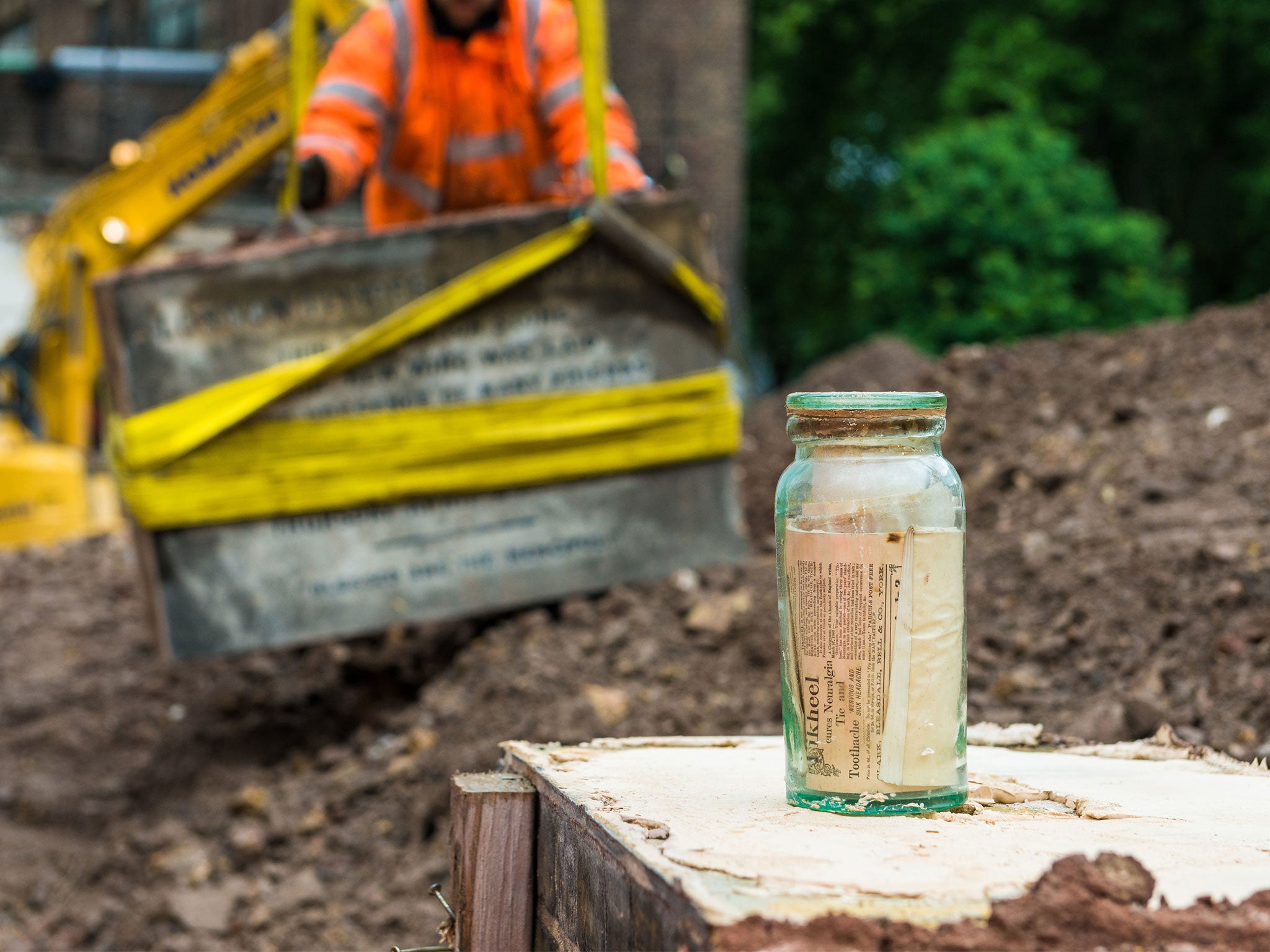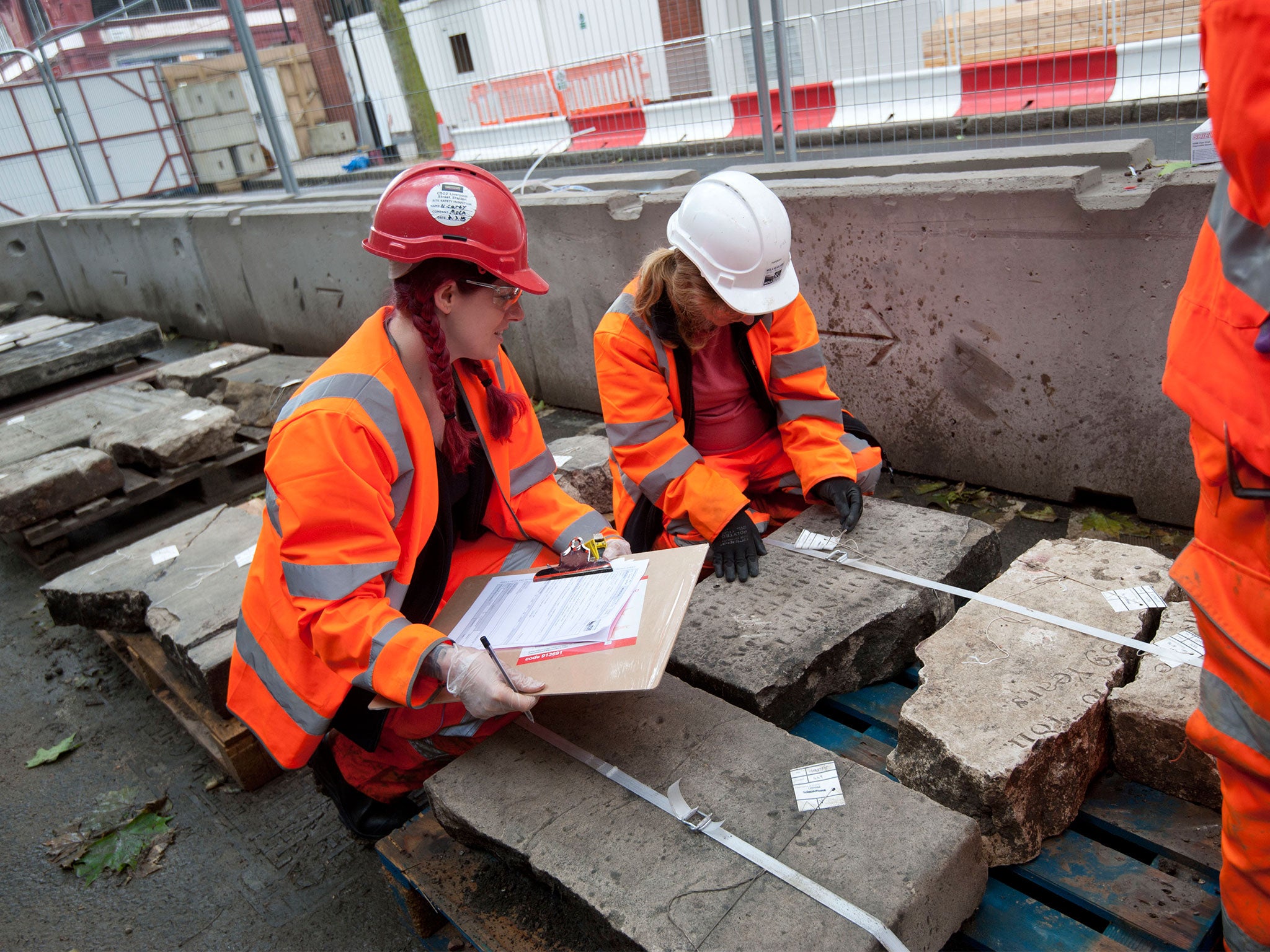HS2 dig: archaeologists begin examining 10,000 years of history along 150-mile route
Hundreds of experts search for artefacts at 60 different sites in what is thought to be Europe's largest excavation
Your support helps us to tell the story
From reproductive rights to climate change to Big Tech, The Independent is on the ground when the story is developing. Whether it's investigating the financials of Elon Musk's pro-Trump PAC or producing our latest documentary, 'The A Word', which shines a light on the American women fighting for reproductive rights, we know how important it is to parse out the facts from the messaging.
At such a critical moment in US history, we need reporters on the ground. Your donation allows us to keep sending journalists to speak to both sides of the story.
The Independent is trusted by Americans across the entire political spectrum. And unlike many other quality news outlets, we choose not to lock Americans out of our reporting and analysis with paywalls. We believe quality journalism should be available to everyone, paid for by those who can afford it.
Your support makes all the difference.Archaeologists have uncovered artefacts spanning 10,000 years of British history as they conduct what is thought to be Europe’s largest dig along the route of the new HS2 line.
Experts from the £56bn project have begun work on a programme to excavate sites the length of the 150-mile route between London and the West Midlands.
Neolithic tools, medieval pottery and Victorian time capsules have already been discovered.
More than 1,000 archaeologists have been enlisted to examine 60 sites along the route.
Areas of interest include a prehistoric hunter-gatherer site on the outskirts of London, a Roman British town near Aylesbury, a 1,000-year-old demolished medieval church and burial ground in Buckinghamshire and a Second World War bombing decoy in Lichfield.
“Before we bore the tunnels, lay the tracks and build the stations, an unprecedented amount of archaeological research is now taking place between London and Birmingham,” HS2 chief executive Mark Thurston said.

“This is the largest archaeological exploration ever in Britain, employing a record number of skilled archaeologists and heritage specialists from across the UK and beyond.”
As part of the dig, tens of thousands of skeletons will be removed from a burial ground at St James’s Gardens next to London’s Euston station.
In recent months, protests and a memorial service have been held at the site where 60,000 people were buried from 1790 to 1853.
HS2 said all artefacts and human remains would be treated with dignity, care and respect, and a four-part documentary on finds uncovered by the project will air on the BBC in 2019.
“With the building of HS2 comes a once-in-a-generation opportunity to improve our understanding of how people have shaped England’s landscapes over thousands of years, from the first prehistoric farmers through Roman and Saxon and Viking incomers to the more recent past,” said Duncan Wilson, chief executive of government heritage body Historic England.

Construction began on HS2 this year after almost a decade of arguments over the project’s cost and its eventual impact.
Some have questioned the likelihood of the initial London to Birmingham section of the route opening as scheduled in 2026, while a freedom of information request revealed the programme is already running £7bn over budget.
A second phase of the project, extending the line in two forks to Manchester and Leeds, is earmarked for completion in 2033.
Additional reporting by PA

Join our commenting forum
Join thought-provoking conversations, follow other Independent readers and see their replies
Comments